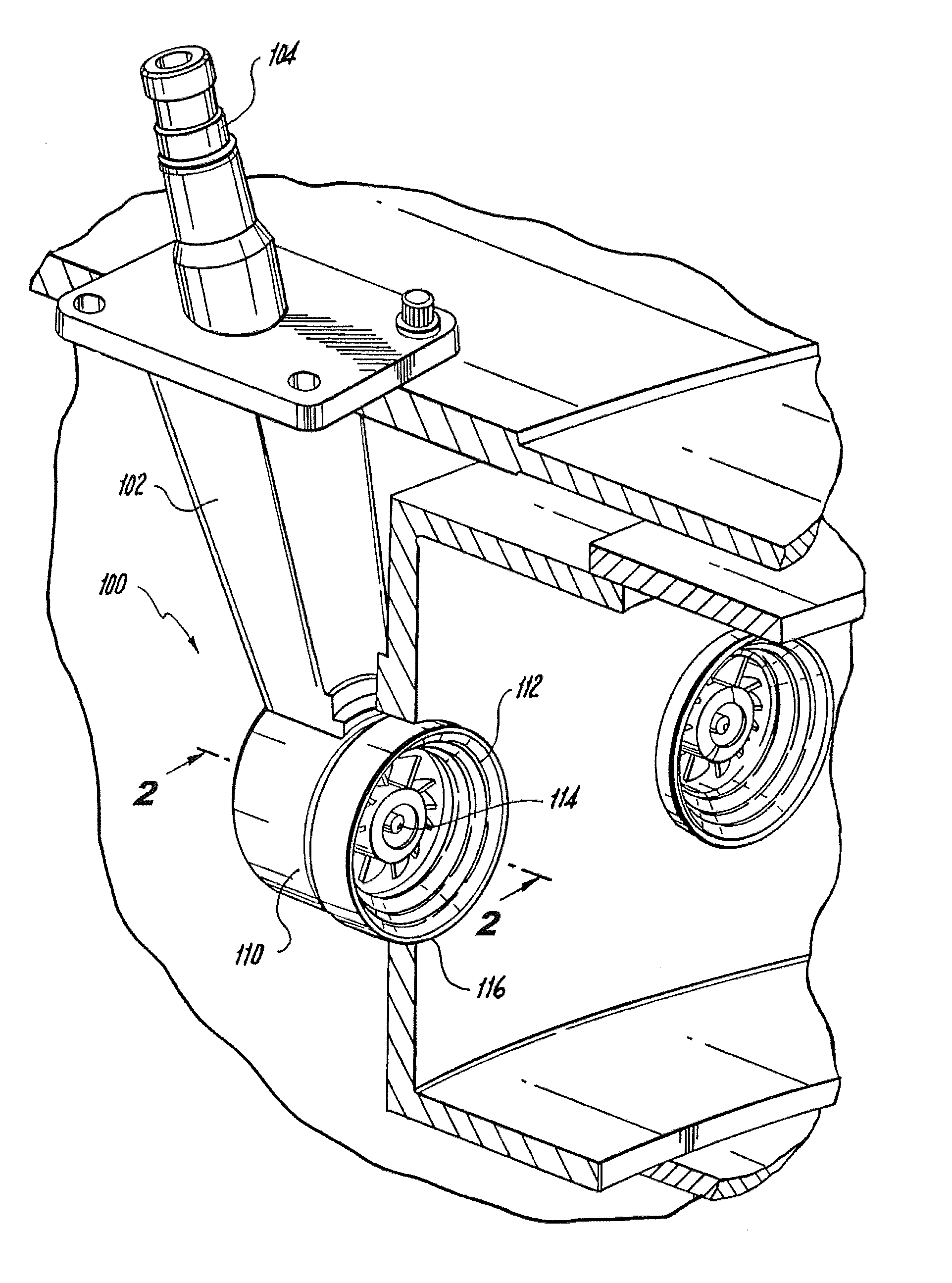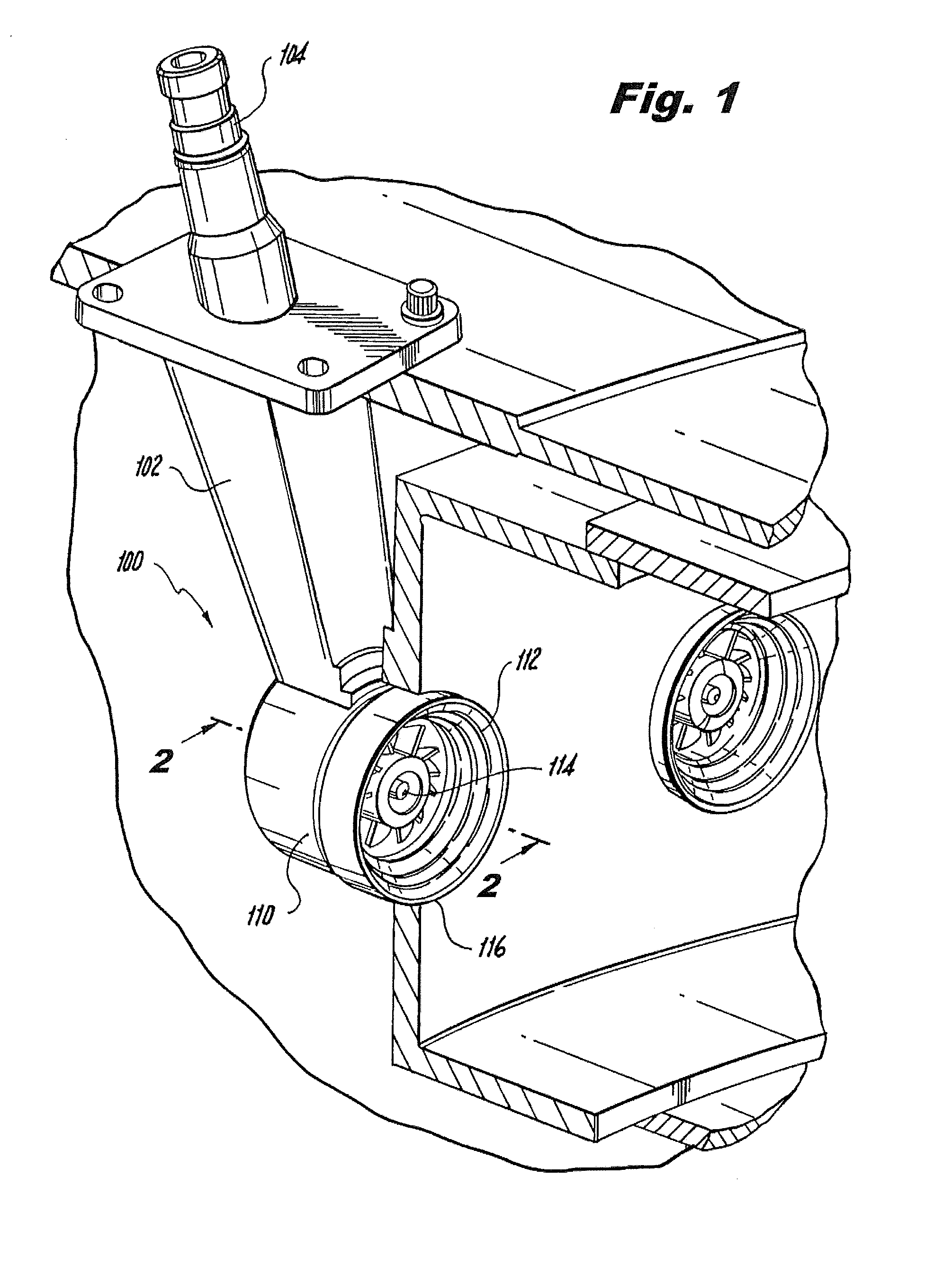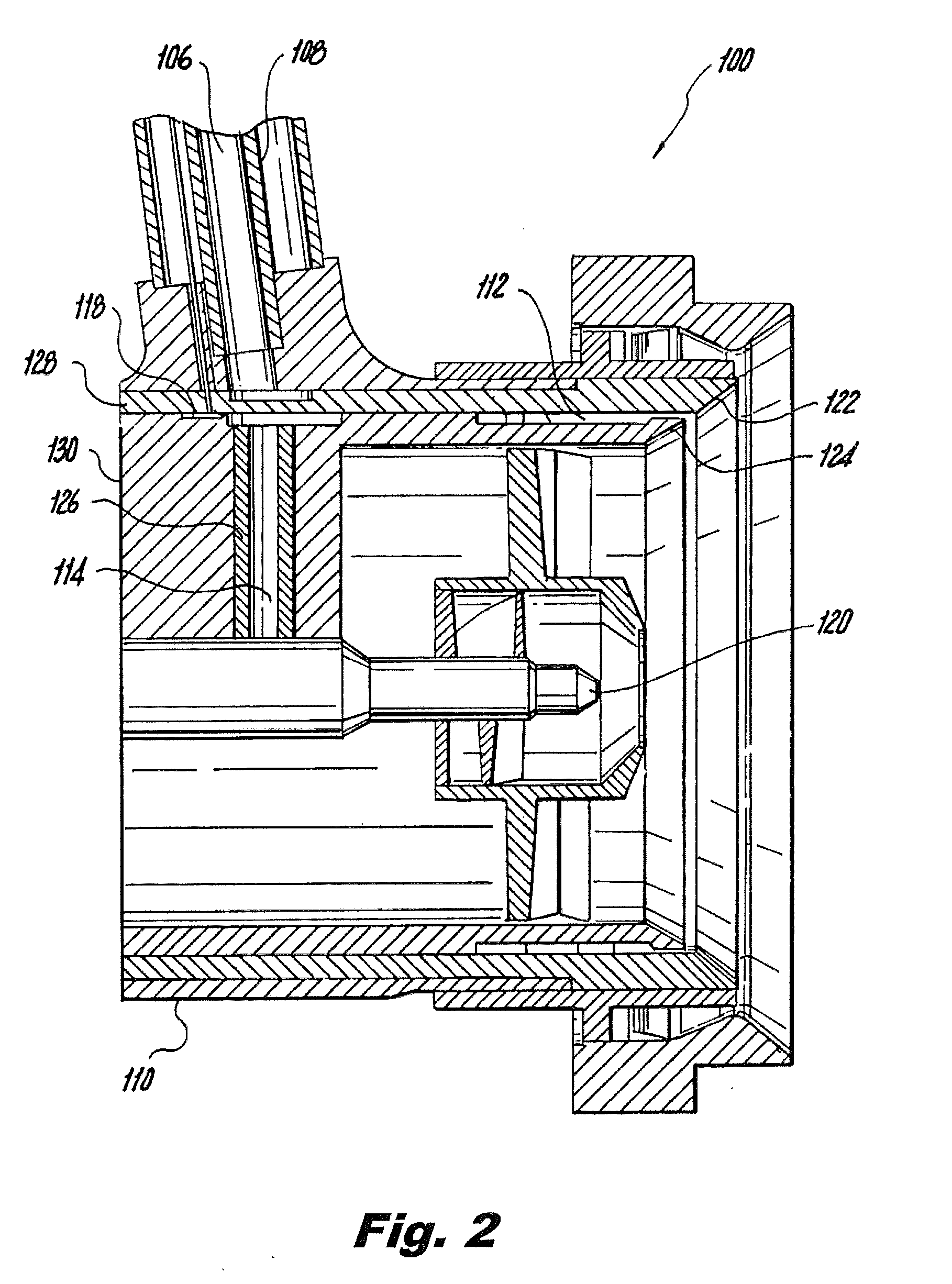Thermal management for fuel injectors
a fuel injector and thermal management technology, applied in the direction of efficient propulsion technologies, machines/engines, lighting and heating apparatus, etc., can solve the problems of stagnant fuel located within the main fuel circuit, fuel typically used in gas turbine engines is susceptible to breaking down into its constituent parts, and can be susceptible to coking. , to achieve the effect of reducing the flow of fuel
- Summary
- Abstract
- Description
- Claims
- Application Information
AI Technical Summary
Benefits of technology
Problems solved by technology
Method used
Image
Examples
Embodiment Construction
[0033]Reference will now be made to the drawings wherein like reference numerals identify similar structural features or aspects of the subject invention. In accordance with the invention, a fuel injector for a gas turbine engine is provided, including a feed arm having a fuel inlet fitting for delivering fuel to at least one fuel conduit extending through the feed arm. A nozzle body depends from the feed arm and has at least one fuel circuit extending therethrough. The fuel circuit is configured and adapted to receive fuel from the feed arm and to issue fuel from an exit orifice of the nozzle body. Sensing means are provided adjacent to the at least one fuel circuit. The sensing means are configured and adapted to provide temperature feedback in order to control fuel flow in the at least one fuel circuit to maintain fuel temperature within a predetermined range.
[0034]For purpose of explanation and illustration, and not limitation, a partial view of an exemplary embodiment of an inj...
PUM
 Login to View More
Login to View More Abstract
Description
Claims
Application Information
 Login to View More
Login to View More - R&D
- Intellectual Property
- Life Sciences
- Materials
- Tech Scout
- Unparalleled Data Quality
- Higher Quality Content
- 60% Fewer Hallucinations
Browse by: Latest US Patents, China's latest patents, Technical Efficacy Thesaurus, Application Domain, Technology Topic, Popular Technical Reports.
© 2025 PatSnap. All rights reserved.Legal|Privacy policy|Modern Slavery Act Transparency Statement|Sitemap|About US| Contact US: help@patsnap.com



